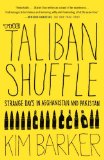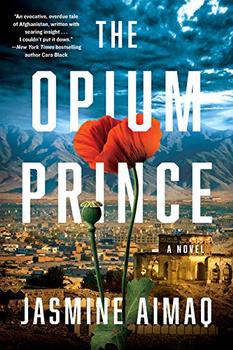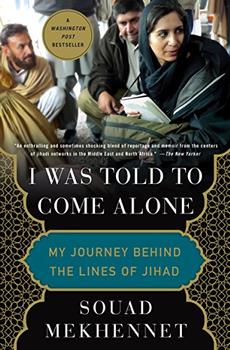Summary | Excerpt | Reviews | Beyond the book | Read-Alikes | Genres & Themes | Author Bio

Strange Days in Afghanistan and Pakistan
by Kim BarkerAt the beginning of The Taliban Shuffle, the dedication reads: "To the people of Afghanistan and Pakistan, who are still waiting for the punchline."
This sums up the tone of Kim Barker's excellent nonfiction book. Covering her adventures in Pakistan and Afghanistan as a foreign reporter for The Chicago Tribune, The Taliban Shuffle is a sardonic, satirical piece of long-form journalism, tinged with bitterness. Lacking much by way of an overriding narrative, the book instead follows Barker in a magpie fashion as she tries to make sense of an impossible conflict, and in the process becomes both fascinated and emotionally tied to the country.
The Taliban Shuffle is entertaining more than analytical and Barker avoids moralizing or being pedantic at all costs. Instead she focuses on all the strange and incomprehensible details of her encounters, the characteristics of her friends and unusual acquaintances, and the highs and lows of her own personal experiences. Many of the stories read as vignettes or extended sketches, however this stylistic choice does not make the book an entirely lighthearted romp. There are moments of outright tragedy and a sense of constant defeat, disappointment, and cynicism.
In one particularly difficult passage on the fate of the Kabul Zoo, Barker depicts how various animals slowly starve to death, are killed for food, or senselessly attacked.
Barker is mostly reverent with the soldiers she encounters, reflecting on the lives of those on the front lines with none of her usual wryness. She does engage in polemic from time to time, questioning the purpose of the war in Afghanistan and criticizing the numerous mistakes she perceives the American government to have made in Pakistan.
Covering roughly 2002 to 2009, the book is split into two parts - the first set mostly in Afghanistan and the second mostly in Pakistan. Barker does her best to succinctly explain the multitude of political comings and goings in both countries, but I occasionally found myself wishing for more context as events unfolded. With that said, deeper analysis would likely have resulted in a book that was less accessible to the general reader than the one that Barker has written. Although she devotes much of the Afghan section to traditional war reporting she also covers other aspects including the often bizarre Kabul party scene:
"For many, life was a pressure cooker... and the only release was liquor, was parties, was dancing to the same soundtrack week after week - "Hips Don't Lie", "Crazy in Love", "Let's Get Retarded"... By this point the social scene resembled a cross between a fraternity party and the Hotel California."
In 2007 in Pakistan, Barker gets closer to the center of the action and finds herself nearby when former Prime Minister Benazir Bhutto is assassinated. Here especially, she tries to make sense of the torturous and chaotic nature of Pakistani politics, but she also keeps the focus tightly on what she experiences, giving a sense of vividness to the descriptions.
Much of what Barker reports is rather disturbing, and her talent is for capturing the absurdity of a horrible situation. She is able to transcend both punditry and gallows-humor to write a book that truly grasps the surreal nature of humanity in places that are normally viewed through the cold lens of wartime journalism. Though the book suffers from an overall lack of narrative and some weaker stories along the way, it is certainly a worthwhile piece of nonfiction for anyone interested in a different line of insight in to a troubled part of the world.
![]() This review was originally published in The BookBrowse Review in June 2011, and has been updated for the
March 2012 edition.
Click here to go to this issue.
This review was originally published in The BookBrowse Review in June 2011, and has been updated for the
March 2012 edition.
Click here to go to this issue.

If you liked The Taliban Shuffle, try these:

by Jasmine Aimaq
Published 2022
Jasmine Aimaq's stunning debut explores Afghanistan on the eve of a violent revolution and the far-reaching consequences of a young Kochi girl's tragic death.

by Souad Mekhennet
Published 2018
"I was told to come alone. I was not to carry any identification, and would have to leave my cell phone, audio recorder, watch, and purse at my hotel..."
Your guide toexceptional books
BookBrowse seeks out and recommends the best in contemporary fiction and nonfiction—books that not only engage and entertain but also deepen our understanding of ourselves and the world around us.